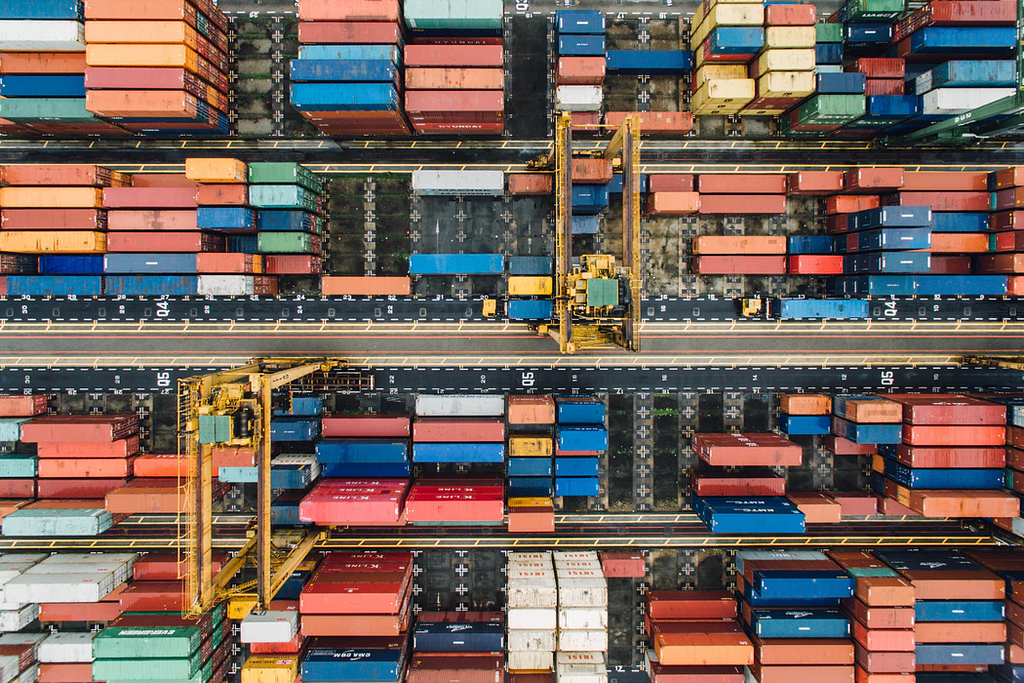Latest news about Bitcoin and all cryptocurrencies. Your daily crypto news habit.
 Photo Source
Photo Source
In the not so distant future, AI and automation will have completely revolutionized nearly every industry, from entertainment, to healthcare, to transportation. AI and automation are already transforming large-scale commerce operations around the world, making transport more efficient, increasing safety, and helping to streamline data analysis.
Changing the Way We Move Products
When people discuss how AI and automation impact the world around us, they tend to look at the most recent trends in those fields. Facial recognition capabilities, cloud computing, deep learning, and AI-enabled chips tend to dominate the conversation — these developments are seemingly what people think will change the world. However, a lot of the true transformational work being done by AI and automation occurs behind the scenes, where the impacts are felt by many but seen by few.
Imports and exports rely on ships to transport them across vast oceans, and those in the shipping industry are always looking for ways to improve efficiency and safety in their operations. AI and automation provide the shipping industry with the technology to make these goals attainable. AI can predict and estimate arrival times with a high degree of accuracy, making the planning of large-scale operations run optimally. Additionally, AI is able to use large amounts of data in order to predict the safest shipping routes or to recognize a problem or inefficiency before it causes serious issues.
Inadequate storage and shipping practices can cause a business to suffer undue financial strain, so it makes sense for any business to have a vested interest in how the shipping industry is implementing these new technologies. Using AI to consolidate shipments into more efficient loads can help to reduce redundancies in shipping routes, saving both money and time. Automation can also help keep labor costs and expenses low while providing consistent and accurate results, replacing old and outdated systems for packaging, processing, and shipping.
Giving a New Perspective, Literally
In recent years, a lot of the draw of new smartphones has revolved around an astounding improvement in camera quality. However, it isn’t new lenses or sensors that are the cause of this leap forward in image quality; it’s actually due to the incorporation of AI. Believe it or not, AI-driven cameras not only provide consumers with crystal clear images on their mobile phones, but they are also improving commerce across several sectors.
Using cameras has always been essential to any business looking to monitor their products in an effort to prevent theft or reduce liability in case of a workplace injury. However, the use of cameras to increase safety has been climbing steadily in both the public and private sector. While there are already cameras and AI in consumer vehicles that assist with collision detection and lane departure avoidance, there are now cameras in commercial trucks that aim to reduce liability by closely monitoring both the driver and the road ahead.
New AI-driven cameras equipped to drones are also shaking up the world of commerce in unexpected ways. Drones can be used unconventional but extremely beneficial ways, like collecting alternative data that can provide unique insight into investment opportunities for developers or generating detailed three-dimensional maps that autonomous vehicle increasingly rely on. These drones can even work in a manufacturing capacity by keeping an eye on warehouse organization, inventory control, and supply chain management.
Making Sense of All the Data
One of the advantages of the implementation of AI and automation across many different industries is the ability to process and analyze huge amounts of data. Whether it is improving efficiency in a supply chain or enhancing mobile technology, AI relies on large data sets in order to function properly. However, while AI needs a lot of data in order to operate, large data lakes are practically useless without AI to parse them out.
Big data is simply too big to process without the help of AI, and without the help of AI algorithms business, would not be able to reap the rewards that it can provide. Insights into all levels of business, from supply chain management to HR issues, can be gleaned from the analysis that AI enables. AI is effectively helping businesses make smarter, more informed decisions regarding all aspects of their business operations and will continue to be a vital tool going forward.
However, despite the many amazing ways that AI and automation are transforming commerce as we know it, it is still important to temper expectations of what AI is currently capable of. AI systems might provide businesses with unexpected or seemingly inaccurate results, but the whole purpose of AI in big data is to do open new possibilities in data analysis. In these instances, sometimes the best course of action is to trust that an AI has come to the correct conclusion. In the end, AI is always going to have less bias than a human counterpart when it performs an analysis.
AI and automation will eventually be a part of every business across the globe. Whether through how we move and share products and information, increasing efficiency and safety through innovative methods, or simply helping businesses to make smarter decisions, AI and automation are set to dominate the world of business. Sleeping on these technologies is a serious mistake, and businesses should be taking full advantage of their current capabilities.
How AI & Automation Are Transforming Commerce was originally published in Hacker Noon on Medium, where people are continuing the conversation by highlighting and responding to this story.
Disclaimer
The views and opinions expressed in this article are solely those of the authors and do not reflect the views of Bitcoin Insider. Every investment and trading move involves risk - this is especially true for cryptocurrencies given their volatility. We strongly advise our readers to conduct their own research when making a decision.